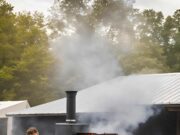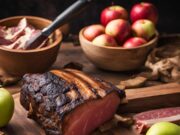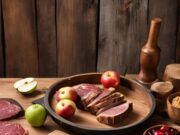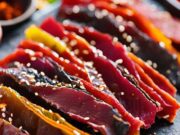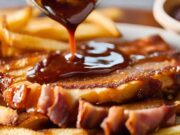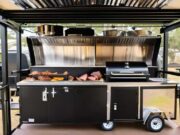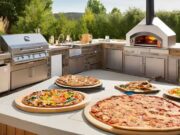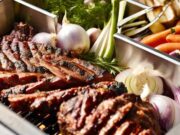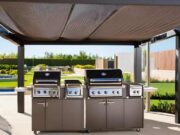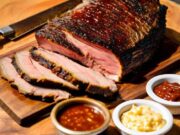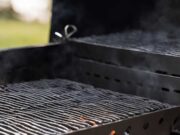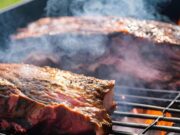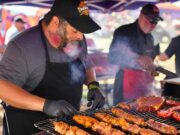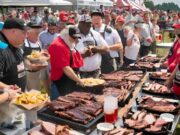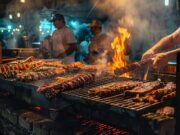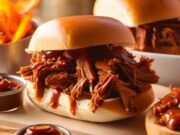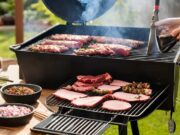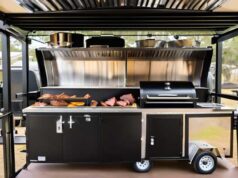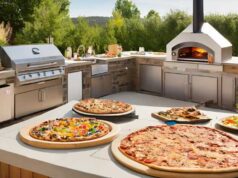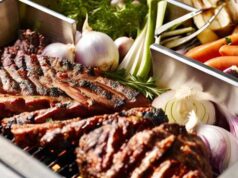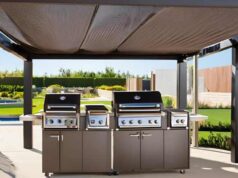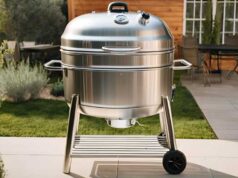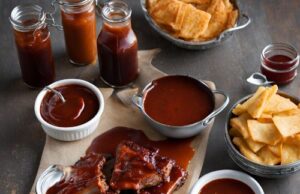Are you prepared to enhance your outdoor cooking experience? Selecting the ideal BBQ grill can be overwhelming given the multitude of options available.
This guide provides a comprehensive overview of everything you need to know, including an assessment of your grilling preferences and an exploration of the various grill types—gas, charcoal, pellet, and electric—as well as essential features and maintenance tips.
Whether you are a novice griller or a seasoned pitmaster, this guide will assist you in making an informed decision that aligns with your style and budget. Prepare to ignite your culinary adventures!
Key Takeaways:
- 1. Understand your grilling needs by considering cooking frequency, style, capacity, and budget.
- 2. Explore the different types of BBQ grills, including gas, charcoal, pellet, and electric, to find the best fit for you.
- 3. Consider key features such as grill size, material construction, durability, build quality, and accessories to make an informed decision.
Understanding Your Grilling Needs
Understanding your grilling needs is essential for selecting the appropriate BBQ grill, as it directly impacts your cooking frequency, style, and the specific features necessary to ensure a satisfying grilling experience.
By assessing your preferences and requirements, you can make an informed decision that enhances your overall grilling enjoyment.
Cooking Frequency and Style
Your cooking frequency and style play a significant role in determining the type of BBQ grill that best meets your needs, whether you are an occasional user enjoying backyard barbecues or a passionate griller aiming to master various outdoor cooking techniques.
For instance, if you frequently host gatherings, you may find that a gas grill is preferable due to its convenience and quick heat-up time, allowing for spontaneous cookouts with friends and family. Conversely, if you are interested in exploring the art of smoking meats, you might lean toward charcoal or pellet grills, which offer a distinct flavor and a slower cooking process that enhances the overall experience.
Your personal cooking preferences, such as a desire for grilled vegetables or perfectly seared steaks, can significantly influence your selection of outdoor cooking equipment, potentially prompting you to invest in additional tools like rotisserie attachments or grill baskets. Understanding these nuances can help ensure that grilling becomes a delightful routine rather than a chore.
Capacity and Budget Considerations
When selecting a BBQ grill, it is crucial to understand both the capacity and your budget, as these factors directly influence the size of the cooking surface needed for your outdoor gatherings and the overall efficiency of the grill.
A larger cooking surface area can be particularly advantageous when hosting parties or family barbecues, as it allows for multiple dishes to be prepared at the same time. The grill’s capacity—whether measured by the number of burgers it can accommodate or the square footage of the grilling rack—determines how well it can meet your needs for various occasions.
Setting a realistic budget that aligns with your grilling requirements is essential, as grills are available at a range of price points. Typically, entry-level grills are more affordable but may lack advanced features such as even heat distribution and durable construction. In contrast, higher-end models provide superior materials and versatile cooking options, ultimately enhancing your grilling experience.
Different Types of BBQ Grills
There are several types of BBQ grills available, each with distinct characteristics and cooking methods. These include gas, charcoal, pellet, and electric grills. This variety allows you to customize your outdoor cooking experience according to your preferences and performance expectations.
Gas, Charcoal, Pellet, and Electric Grills
When considering the different types of BBQ grills, you will find that gas grills offer convenience and quick heat, while charcoal grills provide that unmistakable smoky flavor. Pellet grills blend the best of both worlds, and electric grills cater to those with limited outdoor space or strict safety requirements.
Gas grills, equipped with user-friendly ignition systems, allow for instant cooking sessions, making them ideal for quick weeknight dinners or impromptu gatherings. On the other hand, the charred aromas of charcoal grills are often preferred for weekend barbecues, delivering a more traditional outdoor cooking experience filled with a rich, smoky essence that is difficult to replicate.
Pellet grills take grilling a step further by infusing dishes with diverse wood flavors, which is perfect for those who appreciate the nuances of smoke. Meanwhile, electric grills serve as a practical option for apartment dwellers, providing a safe and manageable alternative to enjoy the essence of outdoor grilling without compromising on taste.
Key Features to Consider
When selecting a BBQ grill, it is important to evaluate key features such as grill size, material construction, durability, and available accessories. These factors collectively influence both cooking performance and user experience during outdoor events.
Grill Size and Material Construction
The size and material construction of a BBQ grill significantly influence its durability and performance, with stainless steel often being the preferred choice due to its resistance to corrosion and ability to withstand high temperatures.
When selecting a grill, it is essential to consider how the size directly impacts the cooking capacity. A larger grill allows you to cook greater quantities of food simultaneously, which is particularly advantageous for gatherings and events.
The choice of construction materials, such as cast iron or aluminum, not only affects the grill’s longevity but also determines how evenly heat is distributed across the cooking surface.
A well-constructed grill, with the appropriate size and material, ensures that your culinary creations reach the desired temperatures quickly and efficiently, ultimately enhancing your overall grilling experience and satisfaction.
Durability, Build Quality, and Accessories
Durability and build quality are essential factors to consider when purchasing a BBQ grill, as they directly influence the grill’s performance over time and its ability to handle various outdoor cooking tasks with different accessories.
A well-constructed grill not only endures the elements but also ensures consistent heat distribution, promoting even cooking for your summer barbecues. The right accessories can significantly enhance your grilling experience, providing versatility in preparing a wide range of dishes, from succulent meats to perfectly charred vegetables.
Key considerations such as heavy-duty grates, effective waterproofing, and sturdy frames greatly improve both performance and longevity, making it essential to invest in quality. Therefore, when selecting a grill, understanding these factors can lead to a more rewarding culinary adventure and greater satisfaction during those cherished moments with family and friends.
How to Assess Grill Power and Performance
Assessing grill power and performance is crucial for ensuring that your BBQ grill can reach the desired cooking temperatures and provide even heat distribution, which directly impacts cooking time and food quality.
To effectively evaluate your grill’s capabilities, begin by examining the BTU ratings, which indicate the energy output per hour. Keep in mind that high BTU values alone do not guarantee superior performance; they must be paired with thoughtful design and efficient heat distribution methods.
Additionally, consider the materials used in the grill’s construction, as some materials allow for better heat retention and more even cooking. Performance metrics such as cooking surface area, the number of burners, and fuel type are significant factors in determining overall efficiency, ensuring that your food is cooked to perfection every time.
Maintenance and Care Tips for Your Grill
Proper maintenance and care are essential for prolonging the life of your BBQ grill and ensuring safe operation. Regular cleaning and inspections are key to avoiding potential hazards and maximizing performance.
To achieve this, you should adopt a routine that includes thorough cleaning after each use, focusing on critical areas such as grates, burners, and drip pans to prevent grease buildup and maintain flavor integrity. Utilizing appropriate cleaning agents and tools will make this process more manageable and effective.
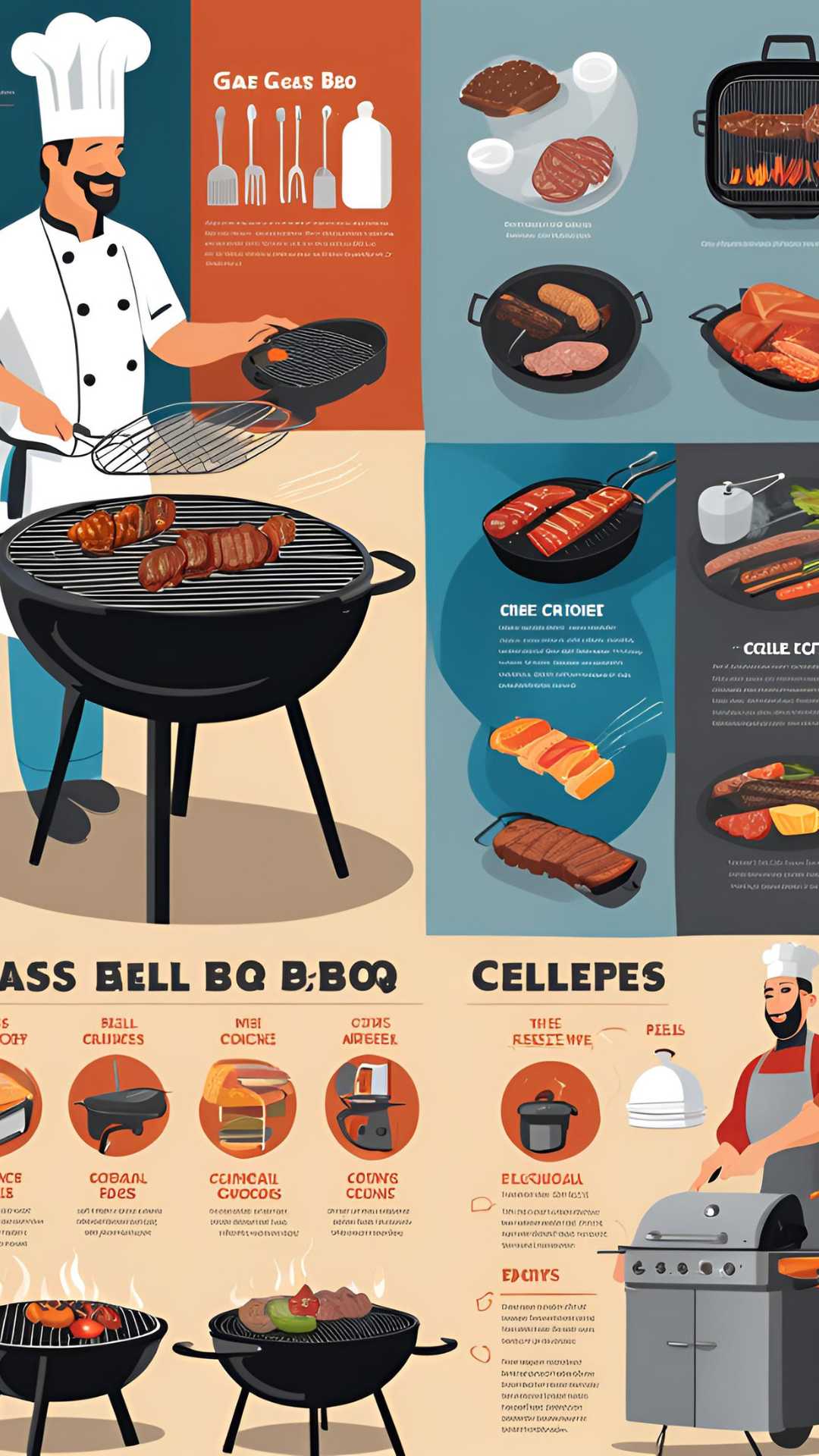
Additionally, conducting safety checks—such as inspecting hoses for leaks and ensuring gas connections are secure—is vital for preventing accidents.
Regularly replacing worn-out components and calibrating temperature controls will also contribute to optimal functioning. By embracing these maintenance techniques, you can enjoy delicious meals while extending the lifespan of your equipment.
Frequently Asked Questions
Frequently asked questions about BBQ grills typically address topics such as types, maintenance, and cooking techniques. This information assists users in navigating their options and making informed decisions regarding outdoor cooking.
Frequently Asked Questions
What are the key factors to consider when choosing a BBQ grill?
Some important factors to consider are the type of fuel, cooking space, construction material, and additional features such as side burners or temperature controls.
What type of fuel is best for a BBQ grill?
This ultimately depends on personal preference, but some popular options include gas, charcoal, and electric. Gas grills are convenient and easy to use, while charcoal grills provide a more traditional smoky flavor. Electric grills are ideal for those with limited outdoor space.
How important is the size and cooking space of a BBQ grill?
The size and cooking space of a BBQ grill is crucial as it determines how much food you can cook at once. If you plan on hosting large gatherings, a larger grill with ample cooking space would be a better choice. However, for smaller households, a compact grill may suffice.
What type of construction material is best for a BBQ grill?
The most common materials used for BBQ grills are stainless steel, cast iron, and aluminum. Stainless steel is durable and rust-resistant, while cast iron retains heat well and provides even cooking. Aluminum is lightweight and affordable but may not be as durable as stainless steel or cast iron.
Are there any additional features that should be considered when choosing a BBQ grill?
Yes, there are many additional features to consider, such as side burners, temperature gauges, and warming racks. Side burners are useful for cooking side dishes or sauces, while temperature gauges allow for precise cooking. Warming racks are great for keeping food warm while the rest of the meal finishes cooking.
What is the average cost of a high-quality BBQ grill?
The cost of a BBQ grill can vary greatly depending on the type, size, and features. On average, a high-quality grill can range from $200 to $1000 or more. It’s important to consider your budget and needs when choosing a grill to ensure you get the best value for your money.


